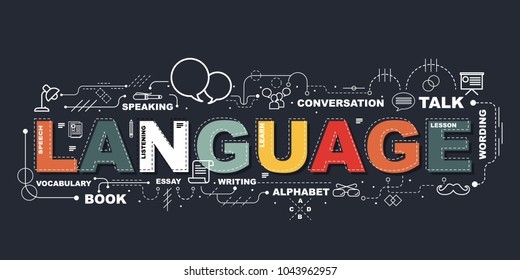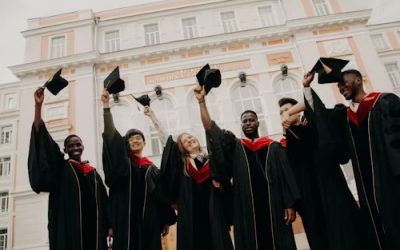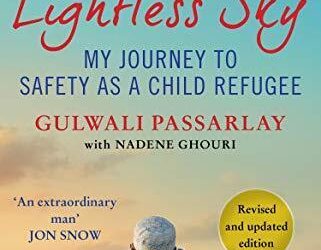Speaking the same language is a crucial bridge to enable integratiion into society. Many writers in the TogetherintheUK’s (TGIUK) anthology, Hear Our Stories, share their experiences and language struggles as they settle into their new country and the kindness of people who help them.

Imagine visiting a country where they do not speak English, and you do not speak their language. You cannot ask for directions, order food, or get medical help because you cannot even explain what is wrong with you. There is a sense of disconnection, isolation, panic, and fear. And a sense of relief when you find a fellow English-speaking person or, even better, someone who can speak your language and the native language of the country. Now imagine how it must feel for people who arrive in the UK as refugees or economic migrants who do not have even basic English. The fear they experience cannot be underestimated, particularly if they have had to endure a harrowing journey fleeing from war or oppression in their home country. The language barrier is not just a momentary inconvenience; it can hold back the immigration process, getting a job or continuing education and, importantly, settling into a new society.
That confusion and sense of isolation at not being able to communicate with others is challenging for adults, but for children, it brings immense stress and disorientation. To find yourself in a school, learning new subjects in a language utterly different to your native tongue, and not being able to make friends with your classmates is exceptionally difficult. Karolina writes humorously about her experiences when starting school in the UK.
When lessons started, I had absolutely no clue what was going on. Now when I have trouble with schoolwork, I like to use the phrase “might as well be written in a foreign language”. Karolina Jaks, A Czeched-In Ticket to the UK
Ironically, she also turned the expression “might as well be written in Greek” to her advantage as both math and chemistry use letters of the Greek alphabet, such as Pi or Delta, and those terms are standard in all languages. When Karolina entered the TGIUK Storytelling competition in 2020, she received conditional acceptance to study maths at Warwick University and hopes to get a PhD in mathematics. What a result for a young girl who carried around a piece of paper with “I don’t understand” written phonetically to help her adapt to her new environment. Another young author in Hear Our Stories, Natalia, shared some of her experiences with us. She came to the UK as a young five-year-old girl.
Going into school, looking around and not being able to make friends; the language barrier was something hard to face as it made me feel like I was a strange creature to them. Natalia Tamargo Pumisacho, Just a Little Girl in a Completely Different World
The joy she felt when someone said hello to her and helped her learn English was not just an act of generosity but set Natalia on her path to help other Spanish-speaking children and adults learn English, adapt to a new country, and help complete necessary paperwork. She offers words of encouragement to others.
I would like my story to be a message to foreign people struggling with settling in a society by letting them know they are not alone, that they are capable to learn {sic} English and even if it takes months or even years, it doesn’t matter, cause {sic} at the end of the day we will all be able to say “WE’VE DONE IT”.Natalia Tamargo Pumisacho, Just a Little Girl in a Completely Different World
Language is one of the keys to effective communication and sense of belonging, and it is hard to measure the psychological damage caused by feeling isolated due to a language barrier. Humans are the most social of all species; being social is intrinsic to survival. Psychology believes that we have an innate need to form connections with other humans and that our relationship with others plays a crucial role in our happiness. This conditioning applies to everybody, all nationalities, all genders, and all cultures, and when the ability to make that connection is disturbed through a language barrier, the results are devastating, anxiety, depression, and a sense of isolation.
With a desperate plea of humid eyes, with a body that could hold no more, “Help me with my speech” – she said to me. Ajicja Pyszka-Franceschini, Work with me on my Accent
Loneliness plays a key role when refugees and migrants are first settling in, and the kindness of strangers in just saying hello can positively impact their spirit.
She woke me up with her gratitude for conversation: “Thank you for talking to me” she said to me. As if conversation was a gift that to migrants is never given for free. I knew how trapped she felt in words that wouldn’t go, how lonely and how hurt because they wouldn’t flow. Ajicja Pyszka-Franceschini, Vulnerabilities
Alicja reminds us that the world would be better and more peaceful if we spoke to each other as equals. To quote the topical TV programme Ted Lasso, “Be curious, not judgemental”. Or, as Alicja writes,
Won’t it be lovely for all of us to start talking in a manner that brings us together rather than sets up apart? Ajicja Pyszka-Franceschini, Vulnerabilities
Learning a new language is one of the hardest things your brain can do. Not only do you have to transfer linguistically complex structures between the two languages mentally, but you also need to learn how to think in a different language. Learning the basics is critical, but understanding the complexities of a non-phonetic language is difficult. We need to remember that English is not a phonetic language; we cannot simply look at how a word is written and know how to pronounce it or hear words and know how to spell them. English is a very challenging language to learn, adding to which regional dialects, idioms and slang form everyday language. In her story, In Britain, Inna Martinova summed this up beautifully when she wrote,
The English I learned at school, in my country, was not the one that I caught in the conversations of the people around. Inna Martinova, In Britain
The Hear Our Stories writers, shine a light on the fact that it is not just a lack of knowledge of the English language that can isolate migrants; it is the accent with which they speak that brings out discrimination and prejudice from others. Some individuals hold biases and stereotype people with foreign accents, associating them with lower intelligence, lack of education, and even questioning their credibility, as Ajicja highlighted in her poem.
Accent is not an obstacle to remain emancipated.Ajicja Pyszka-Franceschini, Work with me on my Accent
Language is deeply intertwined with culture; for migrants, it is often their most substantial tie to their home culture. As a result, many migrants are bilingual, speaking both their native tongue and English. However, some people feel threatened when hearing a language other than English. The author Goody, a second-generation migrant, grew up speaking both Punjabi and English fluently.
I am a second-generation Punjabi. I won’t be a clone; I won’t erase a culture of my own. Alongside being British, I won’t take the Punjabi out of my bones…When people say, “Speak English”, I proudly say, “This is my language too, I can speak two”. Goody, British Punjabi
The writers in Hear Our Stories shared their stories to help everyone understand their situation and what they endured to reach the UK and inspire others facing similar circumstances. Giving hope is one of the best gifts we can share, and we should finish with that same gift in the words of one of the authors’ Abida. Abida, born in the Punjab in Pakistan, came to the UK as a child. The sadness of leaving her country and her beloved extended family behind, and her lack of English, making the first few years of her life in England lonely and isolated, are etched in her memory forever. However, Abida is proud of being an immigrant and succeeding in a country that does not always make it easy to belong. Her writing inspires others and gives them hope.
A year later, I found my voice again. Abida, The Journey (1964).
It is up to all of us to help newcomers find their voice and to feel included, let language be a bridge and not a barrier to opening our hearts and minds.
To read more about how language impacts the lives of migrants and other fascinating and insightful stories, order your copy of Hear Our Stories, through this link.






